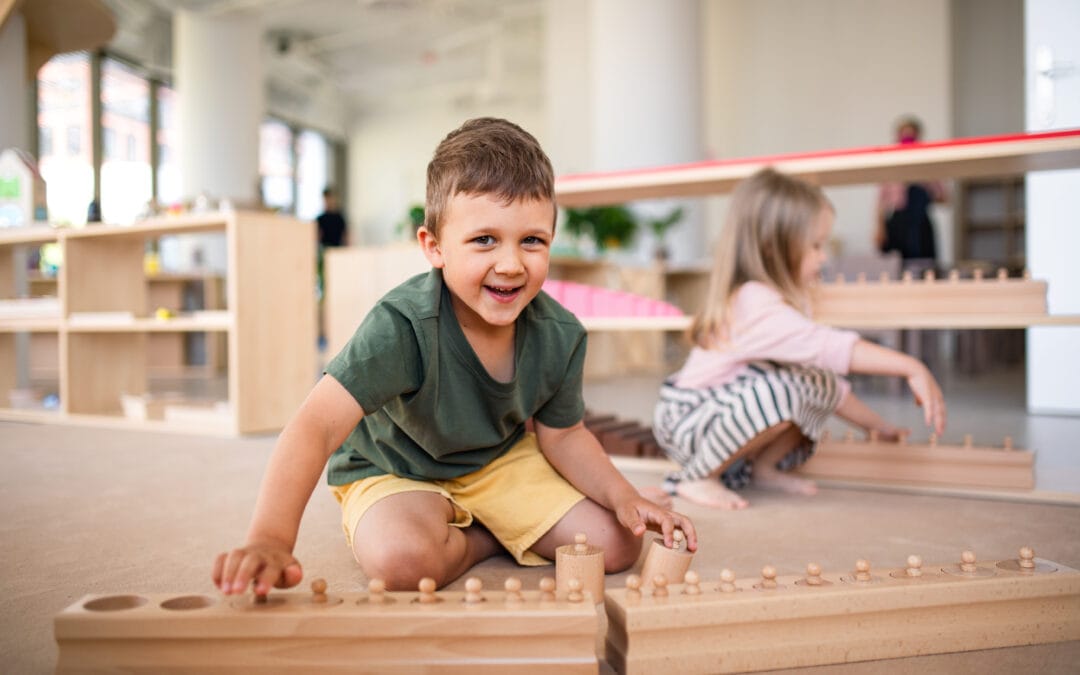Preparing Your Child for a Montessori Classroom: Tips for Parents
You might be wondering how you can prepare your child for this unique educational experience if you are considering enrolling them in a Montessori school. Montessori education is based on the philosophy that children learn best through exploration, independence, and hands-on learning. To help your child thrive in a Montessori classroom, it’s important to understand the Montessori approach and provide a supportive home environment. In this blog post, we’ll share tips for preparing your child for a Montessori classroom.
Understand the Montessori Method
Before you can prepare your child for a Montessori classroom, it’s important to understand the Montessori approach to education. Unlike traditional education, which is teacher-led and focused on lectures and textbooks, Montessori education is child-led and emphasises hands-on learning and exploration. Montessori classrooms are designed to be child-centred, with materials and activities that are tailored to each child’s individual needs and interests. As a parent, it’s important to familiarise yourself with the Montessori method so you can support your child’s learning at home.
Create a Montessori-Friendly Environment at Home
One of the key principles of Montessori education is that the learning environment plays a crucial role in a child’s education. Montessori classrooms are designed to be inviting and engaging, with low shelves filled with materials that children can explore independently. You can create a Montessori-friendly environment at home by providing similar opportunities for exploration and independence. For example, you might provide low shelves for materials that your child can access easily. Encourage your child to take responsibility for their own belongings by providing hooks for coats and bags, and encourage them to clean up after themselves.
Encourage Independence
In a Montessori classroom, children are encouraged to be independent and take ownership of their learning. They learn practical life skills like dressing themselves, preparing snacks, and cleaning up after themselves. You can encourage independence at home by allowing your child to do things for themselves whenever possible. For example, you might allow them to choose their own clothes and dress themselves, or let them prepare their own snacks with your supervision.
Foster a Love of Learning
Another key principle of Montessori education is that learning should be a joyful and engaging experience. Montessori classrooms are designed to encourage children to explore their interests and learn at their own pace. You can help foster a love of learning in your child by providing opportunities for hands-on exploration and learning. For example, you might take your child to a museum or science centre, or encourage them to explore nature in your backyard. Follow your child’s lead and encourage them to explore their curiosity.
Communicate with your child’s Montessori Teacher
Finally, it’s important to communicate with your child’s Montessori teacher. Montessori education is highly individualised, so your child’s teacher will be able to provide guidance on how to support your child’s learning at home. Make sure to attend parent-teacher conferences and ask questions about your child’s progress and areas where they might need additional support.
By following these tips, you can help prepare your child for a successful Montessori education. Remember that Montessori education is focused on the whole child, so it’s important to provide support not just academically, but also socially and emotionally. With a supportive home environment and a commitment to your child’s education, you can help them thrive in a Montessori classroom.

